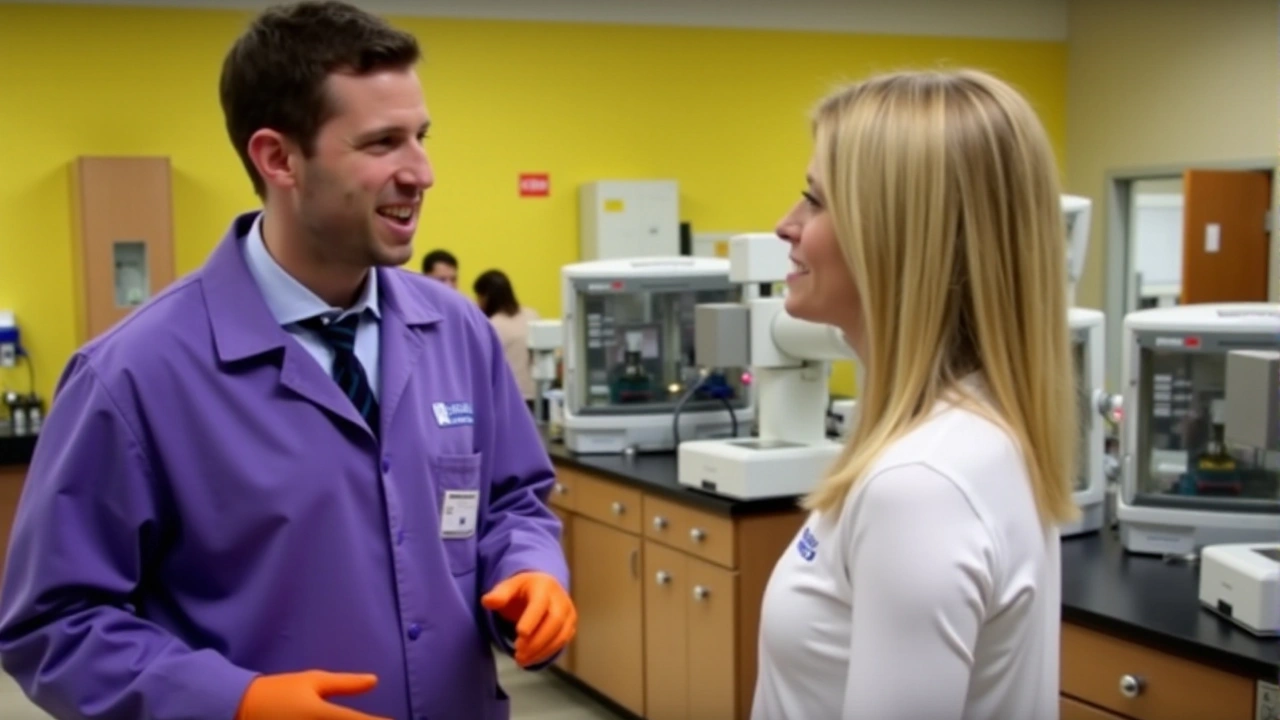Disulfiram – Quick Facts & Practical Tips
If you’re trying to quit drinking, you’ve probably heard of a drug called Disulfiram. It’s sold under brand names like Antabuse, but the chemistry is the same. The main idea behind it is simple: make alcohol taste terrible and cause unpleasant reactions if you drink while on the medication.
On this tag page we’ll walk through how Disulfiram works, who should consider it, what a typical dose looks like, and the side effects you might see. We’ll also cover drug interactions and give you everyday tips for staying safe while using it.
How Disulfiram Works
Disulfiram blocks an enzyme called aldehyde dehydrogenase. When you drink alcohol, your body first turns ethanol into acetaldehyde, a toxic compound that causes the “hangover” feeling. Normally another enzyme clears acetaldehyde quickly, but Disulfiram stops that step. Acetaldehyde builds up and makes you feel flushed, nauseous, rapid heartbeat, and sometimes low blood pressure.
Because those reactions are uncomfortable, many people think twice before having a drink. It’s not a cure for alcohol addiction, but it can be a useful deterrent when combined with counseling or support groups.
Using Disulfiram Safely
The usual starting dose is 250 mg once daily. Some doctors start lower—like 125 mg—for the first few days to see how you tolerate it. You should take the pill at the same time each day, preferably after a meal.
Never drink alcohol while on Disulfiram. That includes not just obvious drinks but also sauces, cough syrups, mouthwashes, and even some over‑the‑counter vitamins that contain ethanol. Even a small sip can trigger the reaction.
If you miss a dose, take it as soon as you remember unless it’s almost time for your next pill. In that case just skip the missed one—don’t double up.
Common side effects are mild: headache, skin rash, or a metallic taste in your mouth. More serious reactions like liver problems are rare but worth watching for. If you notice yellowing of the skin or severe fatigue, call your doctor right away.
Disulfiram can interact with several medications, especially some antibiotics (like metronidazole) and certain antidepressants. Always hand your pharmacist a list of every drug you’re taking so they can flag any problems.
Here are a few everyday tips that help people stay on track:
- Keep your pills in a visible spot—maybe next to your toothbrush—to remind yourself each morning.
- Tell friends and family about the medication. Their support can keep you accountable.
- Carry an emergency card that says “I am taking Disulfiram – no alcohol” for doctors or first‑responders.
- Avoid social situations where drinks are freely offered, at least until you feel confident you can say no.
Disulfiram isn’t a magic bullet. It works best when paired with counseling, support groups, and a solid plan for coping with cravings. Talk openly with your healthcare provider about what you need to stay sober, and keep the conversation going as your life changes.
On Alldayawake.com you’ll find more articles that talk about other medications, tips for buying drugs online safely, and how to spot counterfeit pills. Use the Disulfiram tag to explore everything we’ve written on this topic—whether you need dosage charts, side‑effect checklists, or stories from people who have tried it.
Remember, quitting alcohol is a personal journey. Disulfiram can be a helpful tool, but the real power comes from your commitment and the support around you.

Disulfiram: A Potential Game-Changer in the Fight Against Aggressive Brain Tumors
- Aug, 20 2024
- 5
In a promising breakthrough, researchers have found that disulfiram, a medication traditionally used to treat alcohol abuse, may be effective against aggressive brain tumors like glioblastoma. Early laboratory experiments indicate that the drug can kill cancer cells and inhibit tumor growth, offering new hope to patients with this challenging condition.
Categories
- Health and Medicine (62)
- Health and Wellness (57)
- Medicine (37)
- Women's Health (11)
- Mental Health (9)
- Men's Health (7)
- Beauty and Wellness (4)
- Health Information (4)
Archives
- February 2026 (8)
- January 2026 (25)
- December 2025 (28)
- November 2025 (25)
- October 2025 (27)
- September 2025 (14)
- August 2025 (3)
- July 2025 (2)
- June 2025 (2)
- May 2025 (3)
- April 2025 (4)
- March 2025 (4)
- online pharmacy
- medication safety
- dietary supplement
- health benefits
- dietary supplements
- generic drugs
- prevention
- fertility
- online pharmacy Australia
- side effects
- QT prolongation
- medication side effects
- diabetes medications
- GLP-1 agonists
- nocebo effect
- brand vs generic
- treatment
- treatment options
- benefits
- connection
